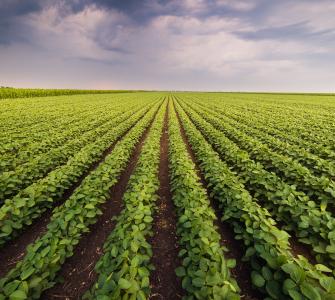Matopiba, an acronym for the collective states of Maranhão, Tocantins, Piauí, and Bahia, is home to the Brazilian Cerrado biome - the world’s most biodiverse savannah. Matopiba is also known as Brazil’s new “agricultural frontier,” as the area is being cleared rapidly for soybean and livestock production driven by favorable soil conditions and climate. As a result of this agricultural expansion, experts predict that 1.3 million hectares of natural areas of Cerrado in Matopiba will be legally deforested between 2020 and 2035, threatening various ecosystem services and the communities that depend on them.
Sustainable land use that reduces such deforestation can be promoted through the use of economic management tools, either through voluntary private sector engagement and/or through public policy and raising funds for incentive mechanisms.
In 2022, Conservation Strategy Fund (CSF) Brazil worked on a GIZ-funded project that sought to design and promote economic incentives for conservation and sustainable soybean production in the state of Maranhão. Specifically, CSF (1) developed a guide of the most promising available incentive mechanisms; (2) conducted a study to determine soybean farmers’ willingness to engage in different types of potential incentive mechanisms; (3) held a series of webinars for soy producers presenting the available incentive mechanisms; (4) and facilitated a series of meetings with farmers and other stakeholders to discuss the results from the analytical study on incentive mechanisms’ economic feasibility.
As a result, three producers who participated in our training were awarded with the Selo Brasil Agrosustentável (Brazil Agrosustainable Seal), a GSC (Global Certification System) certification. These landowners are the first to receive this type of certification in eastern Maranhão and can now benefit from better marketing, sales bonuses, and improved finance terms.
In 2023, we began a second phase of this initiative, funded by Rede ILPF. We completed a series of trainings in financial mechanisms for sustainable practices, targeting key players in the soy production chain to facilitate their access to payment for environmental services (PES) programs, credit, and agricultural subsidies that recognize and value sustainable actions. We also facilitated dialogues among landowners and investors to finance the transition to a more socio-environmentally efficient and fair production pattern. Additionally, as part of the project, we delivered a series of policy recommendations to the private and public sector to improve soybean value chain sustainability and reduce deforestation in Maranhão.
Photo Credit: Fotokostic/ Shutterstock.com

